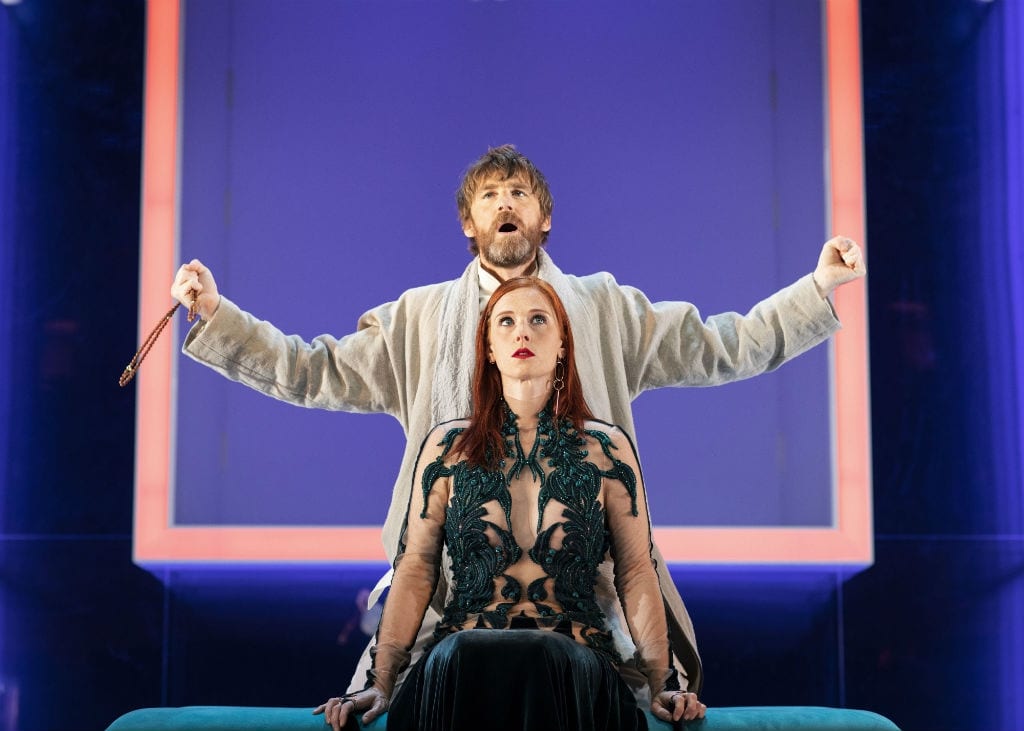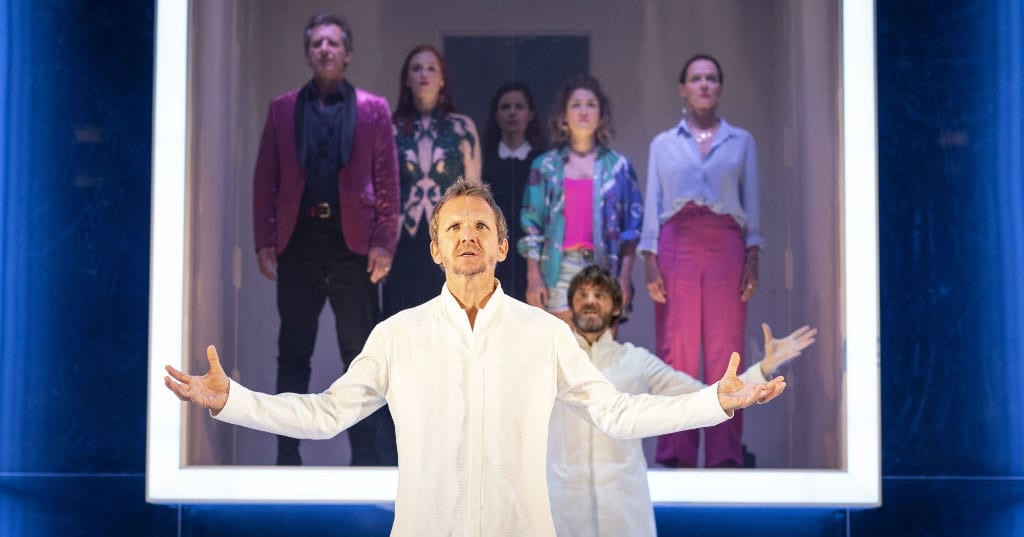In Gérald Garutti’s production of ‘Tartuffe’, Molière’s classic play about a religious mountebank who inveigles his way into a prosperous household is zoomed forward by nearly 400 years to California, that fertile ground for cults and charlatans. But the most startling feature of this production is a text that switches between English and French, a feat according to its adapter Christopher Hampton ‘not hitherto attempted on the London stage’.
Audiences might come out of this show with some understanding of why it hasn’t been done before because it isn’t always clear what such an unusual bilingual venture achieves. Rest assured, though. There’s no need to dust off the GCSE French because the whole text, in English and French as required, is run as surtitles displayed on four screens dotted above, below and either side of the stage.
Orgon (Sebastian Roché) is now a French media tycoon and paterfamilias. He invites the religious fraud, Tartuffe, a drawling southerner (Paul Anderson) into his Los Angles home in the teeth of frequent and funny protestations from his extended family, including his glamorous wife, Elmire, a standout performances from Spiral’s Audrey Fleurot, and straight-talking brother-in-law, Cléante (Vincent Winterhalter). Orgon will not be deviated from his determination to be duped by his guest giving rise to the glorious chaos everyone expects.
If they do nothing else the screens suggest the teleprompters that infest the news studios that Orgon, the media tycoon, commands. They support the contemporary concern that the production has lacquered on to Molière’s original: the role of ‘alternative facts’ in the modern media age. Reading the dialogue as it is spoken reminds the audience that so much of what we see on television screens is created to be consumed and cannot be trusted as absolute fact. The repeated switching between French and English adds to an exciting atmosphere of chaos and confusion. Orgon remains doggedly blind to Tartuffe’s quackery as his family’s warnings are literally being lost in translation.

A minimalist set is dominated by a large glass box, which smears and clears to conceal and reveal its inhabitants as needed. Our first glimpse of Tartuffe, arms stretched wide in crucified pose, is in this enormous ersatz TV, another nudge, should we need it, that we’re in the mass media age. We watch Tartuffe while he watches the rest of the household get up to various episodes of debauchery. Thus Garutti stretches another contemporary message from Molière’s play: who can you rust and believe in our age of lies?
Fake news is a special favourite of Donald Trump’s, and we are plainly in his America. There’s no shortage of fads and trappings of the Saturday-supplement ‘virtuous’ lifestyle includes a dubious green smoothie that Orgon glugs when his throat dries up.
On balance, ‘Tartuffe’ is an entertaining night out. Go for the novelty of a bilingual performance, enjoy some fine comedy from Fuerot, Winterhalter, Roché and Claude Perron, who steals the show as Dorine, an acerbic maid in Orgon’s household.
For me things jarred in the final scene, with some gratuitous Trump mementoes – notably a reference to the notorious ‘grab ‘em by the pussy’ episode” – and some prolific tweeting. Hampton’s modernized script stands rises above these crass references in a fun production.

